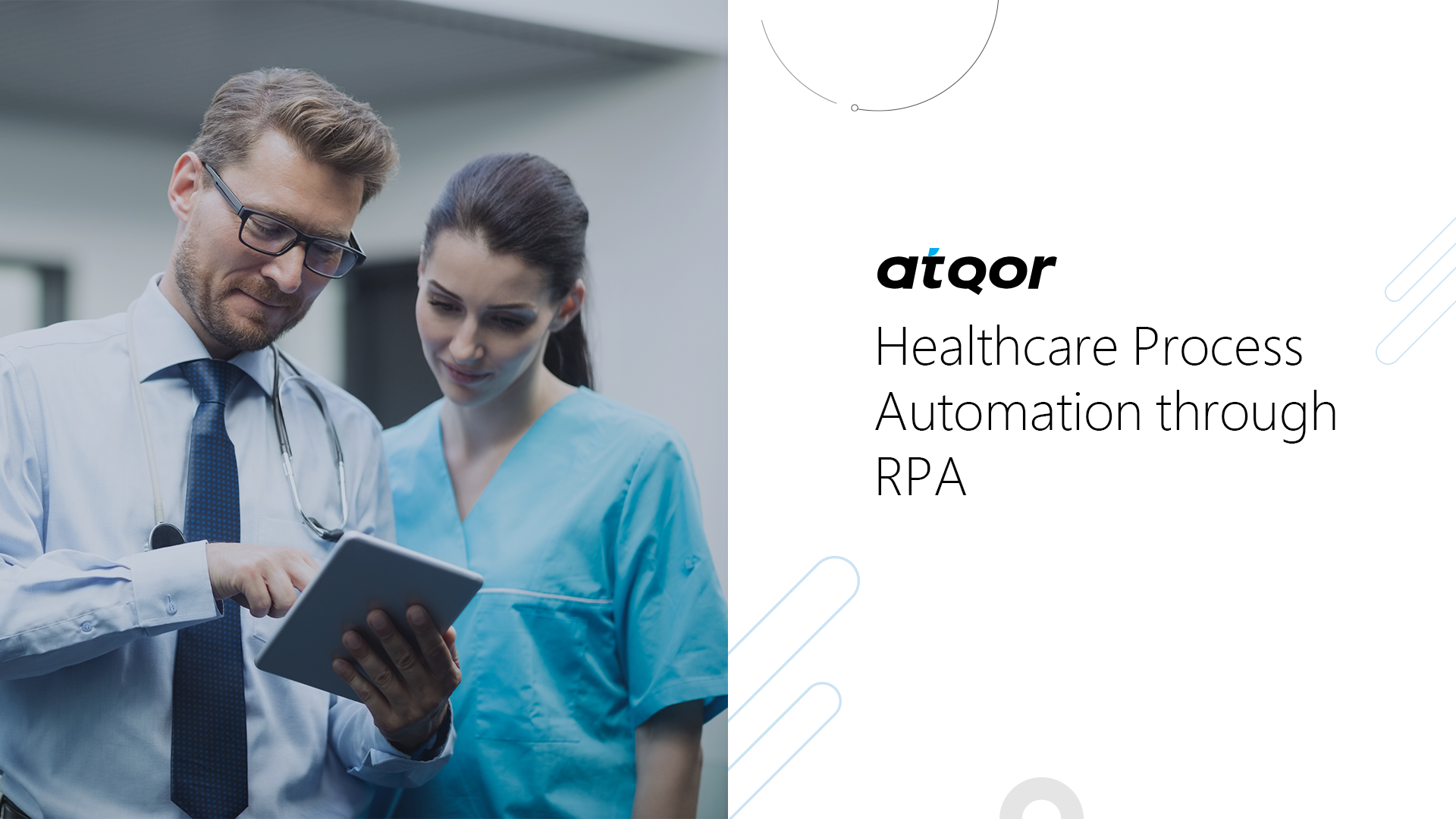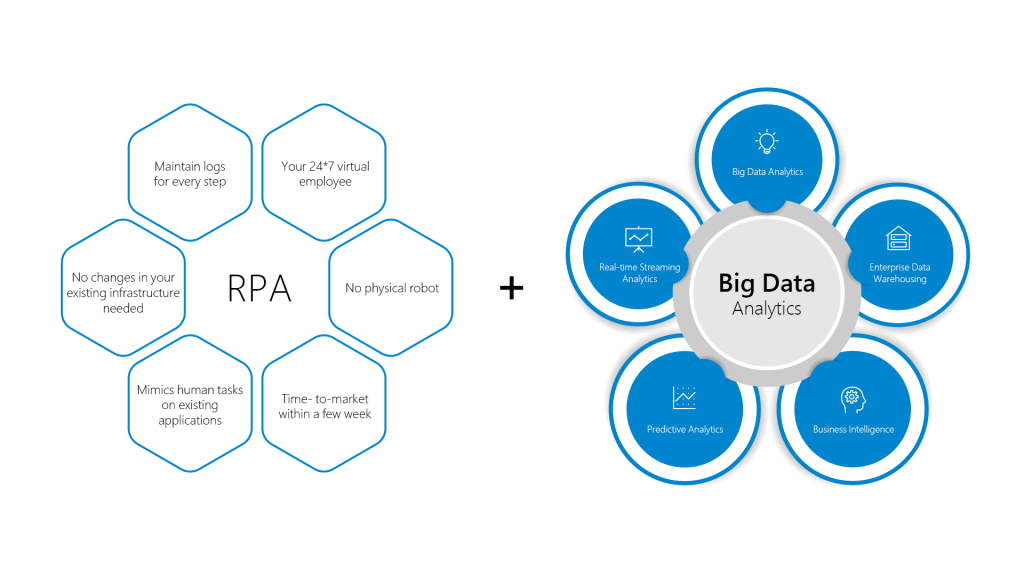December 17, 2021 | Digital Marketing, Power Platform

Almost all of you must have has this experience where the receptionist or the Doctor spends half of their time of the visit staring at computer screens rather than paying attention to you. This is because they are constantly updating patient information and routines etc.
This is where Robotic Automation Process comes into the scenario. RPA development and automation allow the staff to hire an in-house digital assistant to be responsible for access, entering, and updating patients’ information on a routine basis.
Patients have the facility to go online and book appointments by just entering their details. But the steps after that are time-consuming and need a lot of homework. An essential consideration to be made while booking an appointment is Doctor’s availability. And emergency visits and such circumstances are also to be considered.
Robotic Process Automation is here to help you with this. The bots collect information and schedule appointments based on diagnosis details and the Doctor’s availability. And if there are any changes in the appointment, the patient is automatically notified of the same.
Managing accounts is a tedious job for the accounting department. Calculating the expenses, nursing, food, room rent, prescriptions, and numerous other expenses manually can have a big downside of arithmetic errors. This is when RPA steps in. it can effortlessly cater to the accounting needs.
It can also send invoices to the patients related to their expenses. Its main purpose is to reduce errors and settle accounts efficiently and without much fuss.
Medical insurance procedures and processes are tiresome and tedious work. Especially if done manually, it is prone to mistakes that can further affect the cash flow. And also, there are chances of rejection as some clauses might not be adhered to. RPA helps streamline insurance claim management and also locate exceptions to avoid rejections. This will help in managing insurance, and issues can be avoided.
Different patients have prescribed different diet plans after their discharge, and a note of whether it is being followed or not is needed. RPA covers this where bots send regular reminders regarding picking up meds, upcoming appointments, required tests, and more. And it can also send suggestions if a patient needs any more care in any case.
The auditing process is loaded with a lot of activities and has risks involved. One needs to go through all the phases for even producing reports. And later reports are sent to respective personnel for approval, and it has to cover service quality, patient safety, and other related attributes.
Healthcare audits are essential as it shows the organization’s practices are in sync with industry regulations. Manual edits with loads of information will turn out to be tedious as well as prone to errors as employees get exhausted with overwhelming information.
RPA bots collect the data, analyze the same, produce reports accordingly, and send it to appropriate staff. And bots can also keep in check with the members who have and haven’t sent reports on time and remind them through regular reminders.
Institutions tend to store patients’ data in their database, and important decisions depend on data-driven cases, and optimizing and analyzing the gathered information is a huge task. RPA helps acquire and analyze these volumes of data and derive meaningful reports. This analysis cuts down to treatment types, diagnostic approaches, and other vital procedures. And these analytical reports also help doctors, physicians, and healthcare providers to create personalized treatment and diet plans for patients.
RPA manages and coordinates various tasks like remote monitoring, case utilization management, patient wellbeing pursuits, and other critical undertakings regarding healthcare institution operations. The workflow consists of roles and activities of patients and institute employees. And a trusted authority is required to handle these jobs at a broad spectrum.
These reports can be of great help to doctors, physicians, and other care providers for creating personalized care packages for patients.

Robotic Process Automation is merging with emerging technologies as a powerful digital transformation tool for businesses worldwide. The Economist says 93% of organizations worldwide admit to the fact that automation is a great advantage for digital transformation. The applications in the healthcare industry focus on simplifying routine processes in a cost-effective and non-invasive manner. This integration is going to take over a lot of technologies and automate almost every aspect of the business in the future.
For getting the benefit of these attributes of the RPA, you need an RPA solution provider to help you. An RPA solution provider helps you integrate and execute the solutions at work. And also assist you with any issues in the way. Having an experienced RPA consultant is very important.
atQor comes in the picture here. We have employees who are experts in Robotic Process Automation technology who can curate customized solutions based on the company’s needs. We give you consulting based on your work and needs. This way, you can have solutions that help you with your work and are easier to understand as they are based on your work itself. This way, your goals are achieved, and your work is eased and simplified. Thus, hiring atQor as your solution provider marks your first step towards automation and digital transformation.